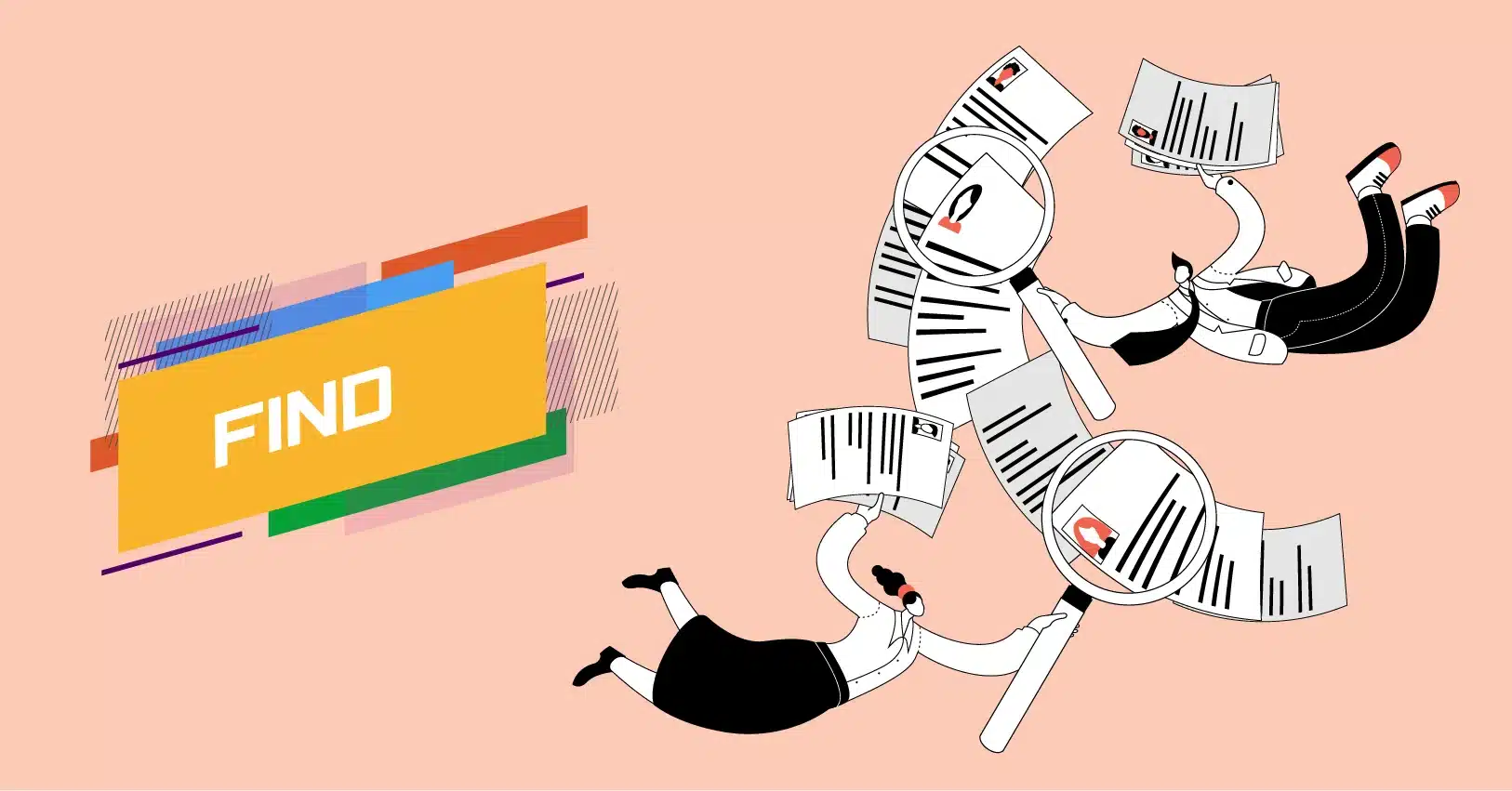SUMMARY: This blog post is all about ensuring you don’t fall into some of the most common pitfalls when looking for a job.
It’s a shame, but at some point, we have all fallen into one trap when applying for or looking for a job.
Just imagine it, you have found a job you think you’d be perfect for.
You have then written a great CV and a blinding cover letter to go with it.
Then with confidence, you have clicked send on your application.
Being satisfied with your efforts, you kick back and relax.
Only a few seconds after the application has been sent, you discover that you still need to mention an essential piece of experience.
Or some formatting on your CV looks off, or you can’t remember what the company was looking for.
You are kicking yourself, annoyed that you hadn’t been more patient with selecting the right job.
Or on the other hand, you may now realize you didn’t write the best CV.
You may even realize you had a connection you could have used.
Panicked, you feel you’ll never get a job if you keep making these same mistakes.
However, help is at hand.
Having read this short blog, you will know exactly what common mistakes you will likely make.
And how to effectively steer away from them.
This should lead to you finding the right job and securing it.
Read on to discover more.

Like this post?
Sign up for our blog updates and never miss a post. We’ll send you A FREE job interview eBook as a thank-you.
The keyword when we talk about job applications is specificity.
Adopting a one size fits all approach can be incredibly tempting when looking for a job, maximizing the number of applications you can send to potential employers.
When it comes to the job-seeking world, however, quality is usually far more effective than quantity.
This means that you are more likely to get a response if your application is tailored specifically to the job advertisement than if you send a generic CV and cover letter to many generic jobs.
This also applies to the skills and experience that you have.
You are usually better served if you can find one or two jobs whose requirements you can meet completely, rather than 10 or 20 that you can hit most of.
The last piece of advice worth bearing, before we get into the most common mistakes is that the small stuff counts.
By this, we mean spelling, punctuation, grammar, and formatting.
It would be a shame to pique a hiring manager’s interest with your fabulous experience only to have two spelling mistakes ruin the authority of your application.
One of the best ways to ensure your application is as sharp as possible is to get as many people as possible to read over it.
The more pairs of eyes on your work, the less likely a mistake is to get through.
The Most Common Job Seeker Mistakes and How to Avoid Them
Not Using Keywords That Appear In The Job Ads In Their CV Or Cover Letter
You will rarely find a job advert that does not include a section that specifies what they are looking for in the candidate for the position.
This is usually titled “Who you are” or “Person specification.”
This includes qualifications, experience, and critical skills, usually listed in bulleted points.
Each keyword and phrase must appear in your application to get you through the first wave of rejections.
Related Reading
- Resume Accomplishments: Not All Accomplishments Need Numbers
- Job referrals make job landing easier
How to write a resume like a professional resume writer
For example, if a job specification says: “Must have experience working with CMS systems.”
You need to clarify in your application that you possess this experience.
This might sound simple, but it is one of the most important things you can do to help with the success of your application.
Including these keywords is especially important, considering that many HR departments use ATS applicant sifting software these days.
This app scans for keywords in applications, rejecting the ones that don’t use the relevant keywords.
Do
- Be thorough. Employers outline the skills in the advert for a reason. So, ensure every listed skill and proficiencies is somewhere in your application.
Don’t
- Don’t think that skill or experience is implicitly implied by other information in your application. Make sure you are clear and specific regarding how you meet each requirement.
Applying For Every Job That Comes Your Way
You are probably good at many things and have skills in many areas.
However, not everyone can do everything.
Here we come back to the point of specificity.
Applying for every job related to your field is probably not a good use of your time.
Instead, you should focus on jobs specifically applicable to your experience and skill set. Remember quality to quantity.
Targeting jobs that you have a high chance of succeeding with, rather than attacking everything in a scattergun approach, will provide better results for you.
Tip
- Make a list of all the things you want from a job professionally and personally, and have these criteria in mind when job searching.
- List your experience and professional skills exhaustively, so you know which job applications you will likely succeed with.
Having A Generic CV And Cover Letter
If your CV and cover letter appear bland, vague, and general, there is little chance they will stand above the rest of your competition.
How can you make your CV stand out when looking for a job?
What particular skill, experience, piece of work, or quality makes you more valuable to the company you want to work for?
Putting effort into your CV and cover letter to show your unique qualities could be the difference between someone taking notice of your application or not.
You can start on the best foot by creating your cover letter using our cover letter builder.
You can land your dream job fast and efficiently.
Dos
- Use our brilliant and industry-specific CV templates to get you started creating an excellent CV.
- Get others to review your CV and cover letter for mistakes and inconsistencies.
Don’t
- Don’t just rely on a spell checker to highlight your issues. Instead, make a concerted effort to read each section of your application to ensure it makes sense.
Paying More Attention To Job Applications Than Networking
The companies you wish to work for are more than faceless entities.
Flesh and blood human beings populate them.
You can use your professional network to contact someone who works at the company you’d like to work for.
In many ways, more valuable than just applying.
A human connection with an organization will boost your recognition and status within the company before applying.
Getting a personalized referral letter and an excellent application is as close as you can come to a golden ticket when looking for a job.
So, remember to explore your connections before approaching the position.
Do
- Work hard to find or make a connection with the company or organization you wish to work for. Even if this is a nebulous connection via LinkedIn or by a friend of a friend, this is better than no connection at all.
Don’t
- Don’t be afraid to use friends or family connections. A connection is a connection; it doesn’t matter if it’s through your uncle or your best friend’s boss. If you have an advantage, use it.
Other Key Points to Remember When Looking for A Job
Here are some other quick points to remember when looking for a job or making an application.
Remember to Explain Any Gaps In Your Employment
This helps create a solid personal and professional progression narrative your potential employer can follow.
Even if you took a year out to travel or work in a different industry, you could use these experiences to add more skills to your application that otherwise might not have been able to have been evidenced.
Don’t Embellish Without Evidence
When looking for a job, resisting the temptation to tell the odd white lie in your application or exaggerate your role in something can be difficult.
However, knowing how to make sure the best of you comes across without lying is very important.
When writing that you have a skill or experience in your application, always ask yourself, how can I evidence this?
If you cannot, it is probably not worth putting in, as you will be found out sooner or later.
Do Your Homework
Before applying for a job role, know what the organization is like.
What their goals are, who their clients are, and how they operate.
Knowing these things will show your diligence in your application and help you align yourself with their values.
They can give you a better chance of succeeding with your application and when looking for a job.
Ready to Get the Job of Your Dreams?
Sure, you are. Having read this blog, you will know the exact issues to watch out for when applying for or looking for a job and how you can make sure to steer clear of them.
In addition, the hints, tips, and dos and don’ts should hopefully refine what you must do.
They should help you to ensure your applications have the best chances of recruiters seeing and responding positively.
Best of luck.
Further Reading: What to Do When Looking for A Job
- 6 In-Demand Jobs In 2021: Overview, Salary, and Duties
- How to Become More Employable Straight Out of University
- Employability Training at Norwood Employability




